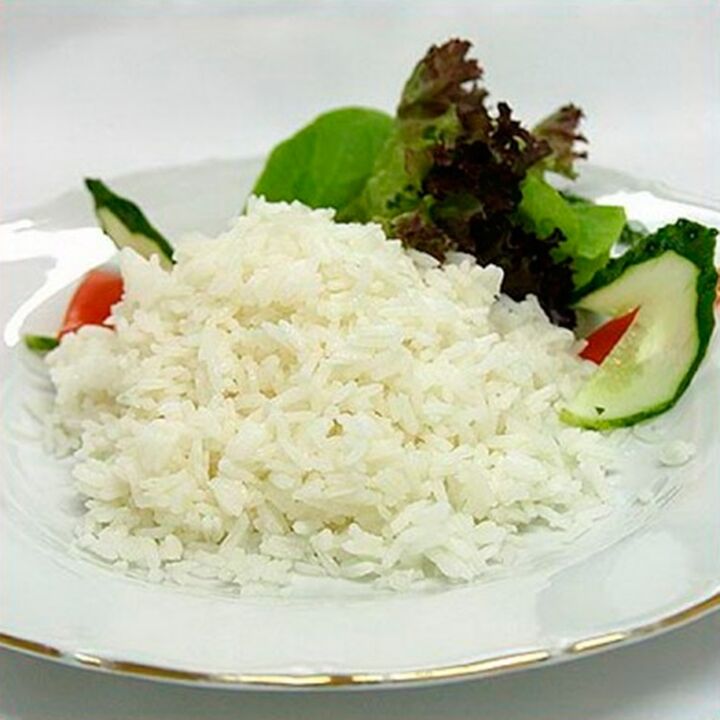
The fourteen-day Japanese diet is for those who want to lose weight very quickly, but the price of such "pleasure" is very high. This diet is rightly considered one of the strictest and toughest. you should exclude most products from your daily diet.
Why does the Japanese diet work? The diet in this case is designed to allow a person to maintain a normal physical condition while helping to speed up the metabolic processes in the body and convert fat into energy, or in other words, burning. it.
By the way, no one can answer why the diet is specifically called Japanese, because neither rice nor seafood, which make up the Japanese’s daily diet, is added.
The difference between the 14-day and 7-day Japanese diets is insignificant at first glance. Both eliminate the use of carbohydrate-rich foods. A 14-day diet gives you the best effect, but it’s twice as hard to survive 14 days without your favorite buns and pies. It should be reminded that you can lose weight up to 1 time a year with any Japanese diet. Failure to do so may result in poor health.
Japanese diet products for 14 days
List of foods banned from the 14-day Japanese diet:
- any alcoholic beverage;
- salt, sugar, spices, condiments;
- smoked meats, fatty meats, fish;
- pickles;
- black tea, cream;
- bulk cheese, butter;
- any animal fat;
- baking, cakes, bread (you can use a small amount of biscuits several times a week);
- sweet carbonated drinks.
List of foods allowed by the 14-day Japanese diet:
- black ground coffee;
- any fruits, vegetables: cabbage, carrots, zucchini, tomatoes, cucumbers, lettuce, parsley;
- chicken eggs;
- vegetable oil (sunflower, mustard, olive, etc. );
- lean meat, fish (best boiled or steamed, for change we can fry it in sunflower oil once a week);
- fat-free kefir;
- mineral water, juices, green tea. The amount of drunk liquid per day should not be less than 2 liters.
It is not recommended to replace the products marked in the diet menu every day because we have put together this diet for a reason. Also, do not interrupt your diet for a day or two.
Advantages and disadvantages of the Japanese diet for 14 days
Benefits of a 14-day Japanese diet:
- nearly 100% weight loss (up to 9 kg in 2 weeks);
- the weight lost will not return in the following years;
- complete refusal of food, starvation is not presumed;
- helps to eliminate edema, remove unnecessary harmful substances from the body.
And now about the disadvantages. The Japanese diet for 14 days in most cases causes malaise. The acceleration of metabolism, a low-calorie diet, of course, cannot be ignored for the body. Usually women try to lose weight this way.
Many of those who have already tried the effects of the diet method themselves admit that they experienced a strong feeling of hunger in the first days of the diet, which did not leave them even after eating. About half of the women on the 14-day Japanese diet reported that after a two-week diet change, their health deteriorated sharply, with some diseases getting worse. Therefore, before starting to lose weight, it is still recommended to consult a doctor and perform a medical examination of the body. Gastritis is unlikely to occur in the background of a two-week change in diet, but this time is just enough for the inflammation of the gastric mucosa to get worse.
Do not follow the Japanese diet for people with high blood sugar, thyroid disorders, or cardiovascular disease. Some foods prescribed by this diet can also be harmful. For example, you should not start the day with a cup of strong coffee for those who often experience high blood pressure, gastritis, or a stomach ulcer.
The diet should be discontinued if it is accompanied by alarming symptoms: dizziness, fainting, loss of appetite, varying degrees of stomach and intestinal pain, nausea, stool changes, headache.
It is very difficult to follow a certain diet for someone who spends most of the day away from home. I agree, sometimes there’s not even a minute of free time at work to just have a snack, let alone an hourly meal. Therefore, to lose weight with this diet, it is better to choose a holiday time.
Housewives are much lighter in this case. However, if you don’t live alone, keep in mind that you also have to cook casual meals for households for 14 days (they don’t lose weight! ) Or, in extreme cases, be present when you make it, which is very difficult. . If you have already decided to lose weight that way, gather patience and willpower.
After the 14-day period, it is important to leave your diet correctly. You should not rely on high-calorie foods right away, you can pamper yourself with some sweets (a small portion of this). In the case of malnutrition, some of the excess weight returns after the end of the diet and fairly quickly.
In case the Japanese diet seems too difficult for you, keep in mind that there are people who voluntarily refuse to eat large amounts of food, eat only vegetables, fruits and grains (vegans, raw foods, orchards), have fun, andno. have health problems. If one is happy to eat only plant foods without feeling any discomfort, one can stay on a low calorie diet for only 2 weeks.





















